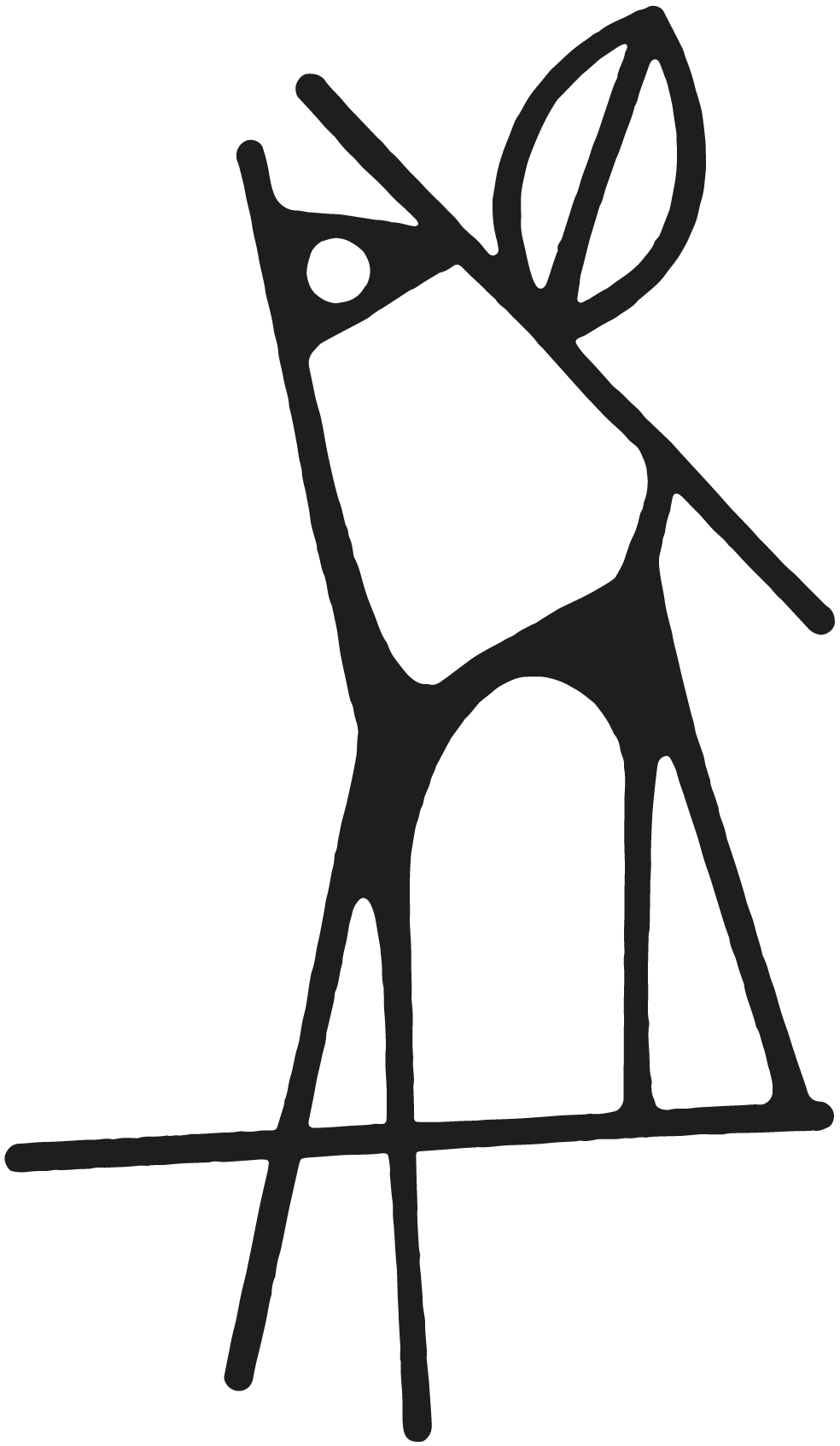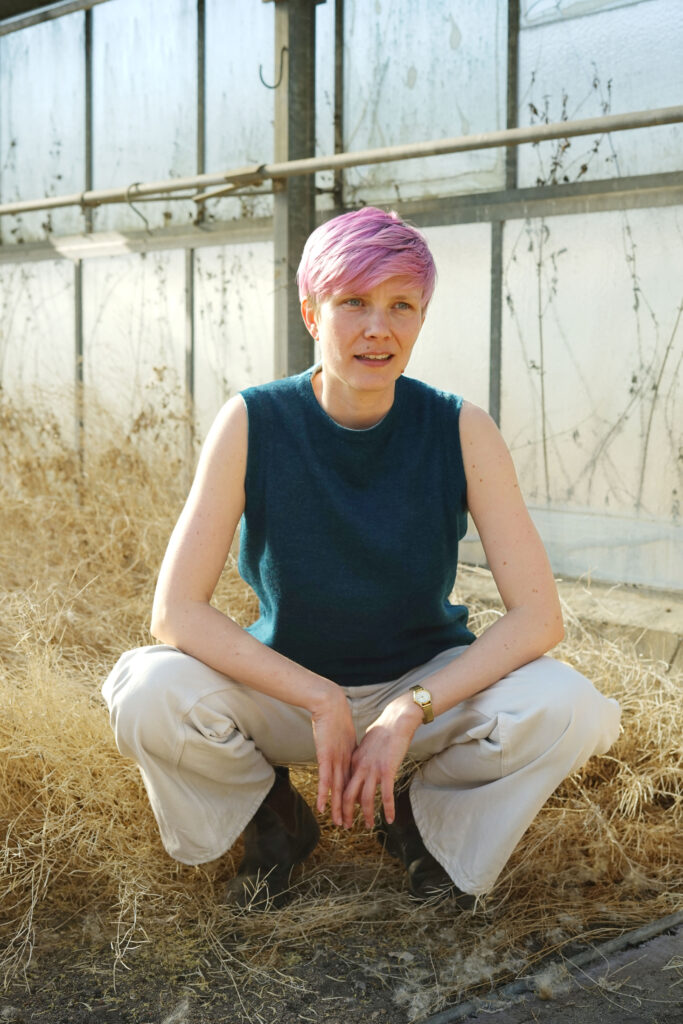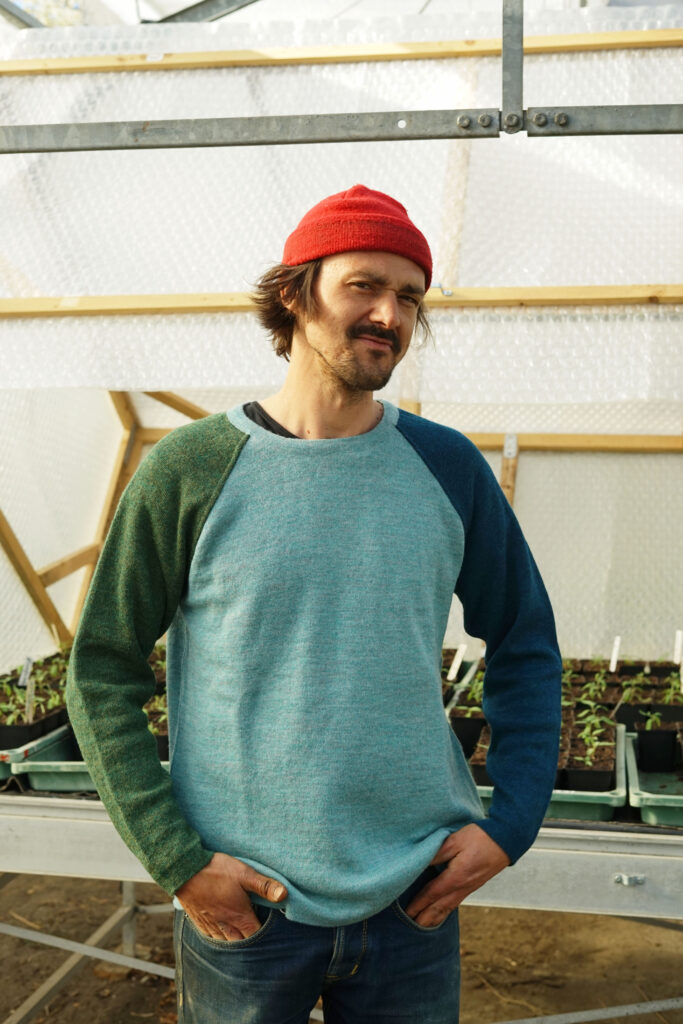About
2.1 Genuine Stoneware Ceramics
2.2 Unisex High Quality Alpaca Knitwear
4.0 Socially Responsible Consumption through Direct-to-Consumer Prices
1.0 Design Principles
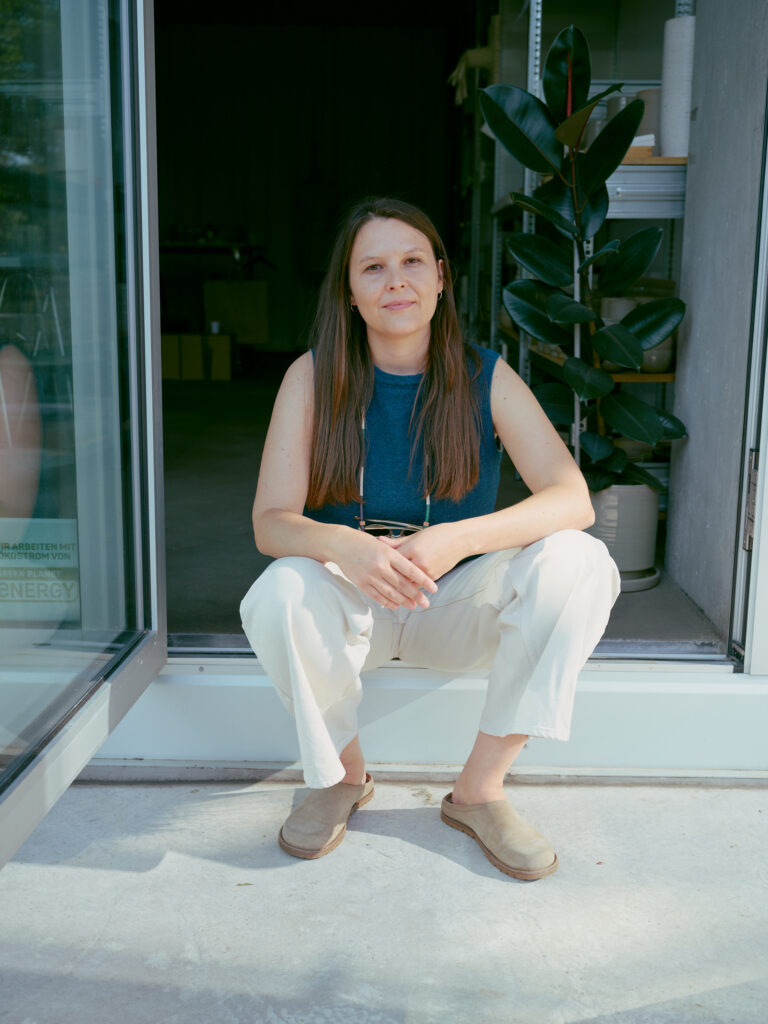
» I’m a designer, working at the intersection of craftsmanship and industrial production in Berlin.
My philosophy centers around harnessing the potential of natural, renewable resources to craft functional, enduring and unobtrusive designs with a timeless aesthetic to use in everyday life.
From versatile unisex clothing to timeless genuine stoneware tableware and plantware, each design upholds the highest standards of craftsmanship, brought to life by skilled artisans in both Germany and Peru since 2015.
My works draw inspiration from the Bauhaus movement, which was not only about a radical rethinking of design, but also about making art and design accessible to all people. Design should be functional, serially producible, and affordable, while championing the crucial concept of merging arts with artisanal crafts, the form with the formless, and the spirit with matter.
While I realised that I can’t alter individual perspectives, I see my designs as tools that can inspire a shift in thinking and consuming.
In 2009, I recognised the increasing challenge of finding well-crafted, ethical and affordable products on the market. Even within the luxury sector, in which I worked, marketing margins seem to dictate the price rather than quality and integrity.
Thus, my work is guided by holistic principles that educate and raise awareness about consumption.
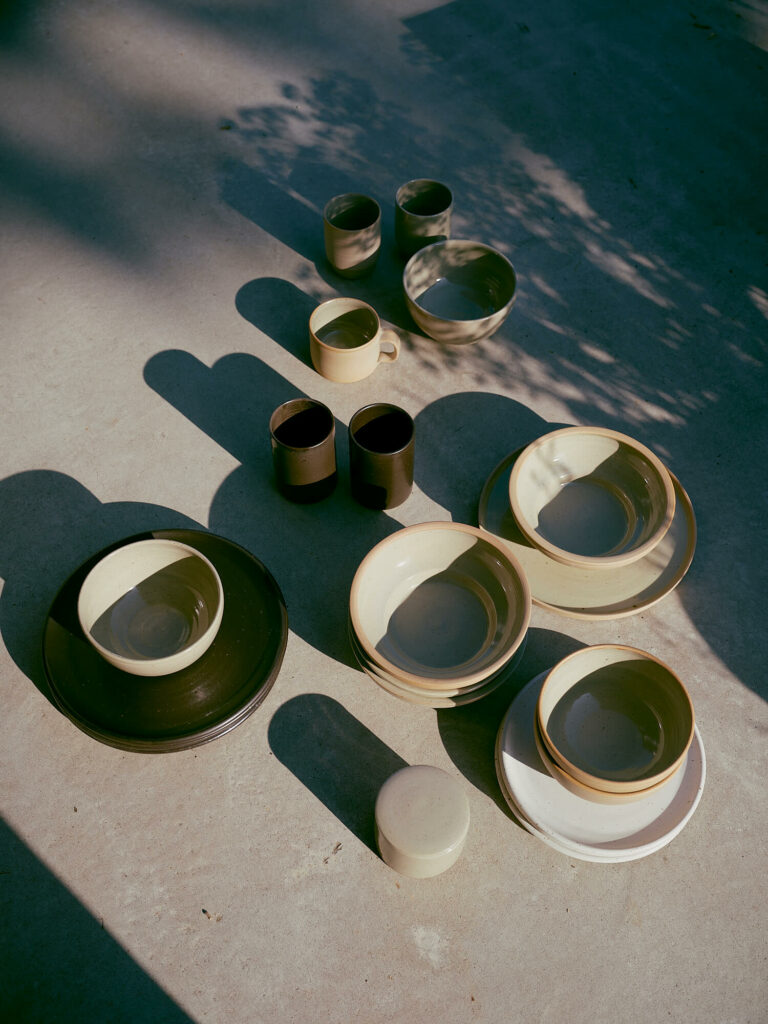
We often think in binary thought patterns, navigating a largley divergent market orientation, that is divided between luxury and discounter. This dividing dynamic tends to polarise consumer cultures rather than bringing them closer. I believe in fostering a more diverse market, one teeming with numerous smaller, ethical, and authentic brands. These local entities offer high-quality goods that address genuine needs rather than creating artificial ones.
This approach, in my view, aligns more closely with contemporary values than the outdated notion that bigger, faster, more expensive, and global is inherently better. The dominance of a few global market leaders stifles diversity and innovation. Change comes when we start asking the right questions and making different choices. Every consumer wields significant power in shaping the market’s trajectory. Attractive offers and consumption alternatives play a vital role in paving this transformative path.
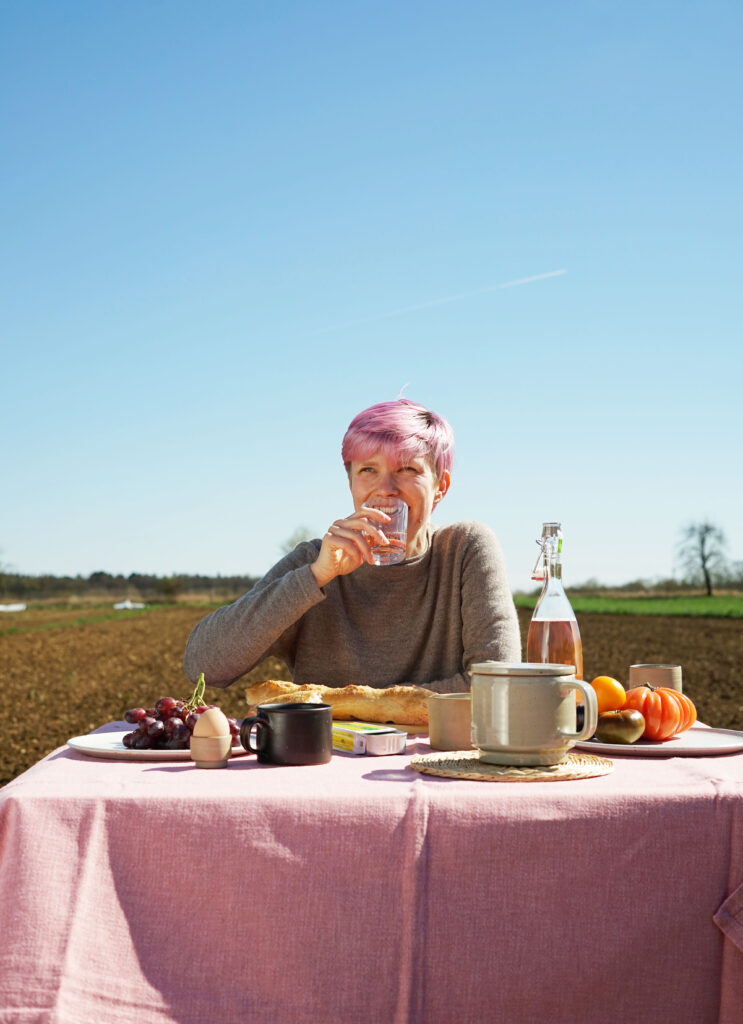
REH (GERMANY) is an artistic attempt aimed at exploring a third alternative that playfully and convergently shows that dualism is merely the reverse side of our being.
Certain products can celebrate our shared human needs and commonalities. For instance, the act of dining on hand-thrown tableware, a tradition spanning thousands of years, or the presence of planters that bring nature into our homes. Even the simple act of wearing warm sweaters in cold temperatures serves as a universal symbol of practicality in cultures worldwide.
Why is it important to create products engineered for enduring longevity?
Making better, social-ecological quality goods accessible to everyone today – is, in fact, the challenge of our time. Increasing profits through maximizing quantity, scaling products through lowering quality, are the dictated constraints, we fail to question.
The debate about socially just consumption is crucial for me as a designer and mediator, because it is often misguided and misses the mark when critics claim that sustainable goods aren’t socially conscious.
In my mind, it is long overdue to overcome the comfort of consuming much and cheaply, but to consume well and responsibly and as little and locally as possible, in order to pay respect to nature and future generations.
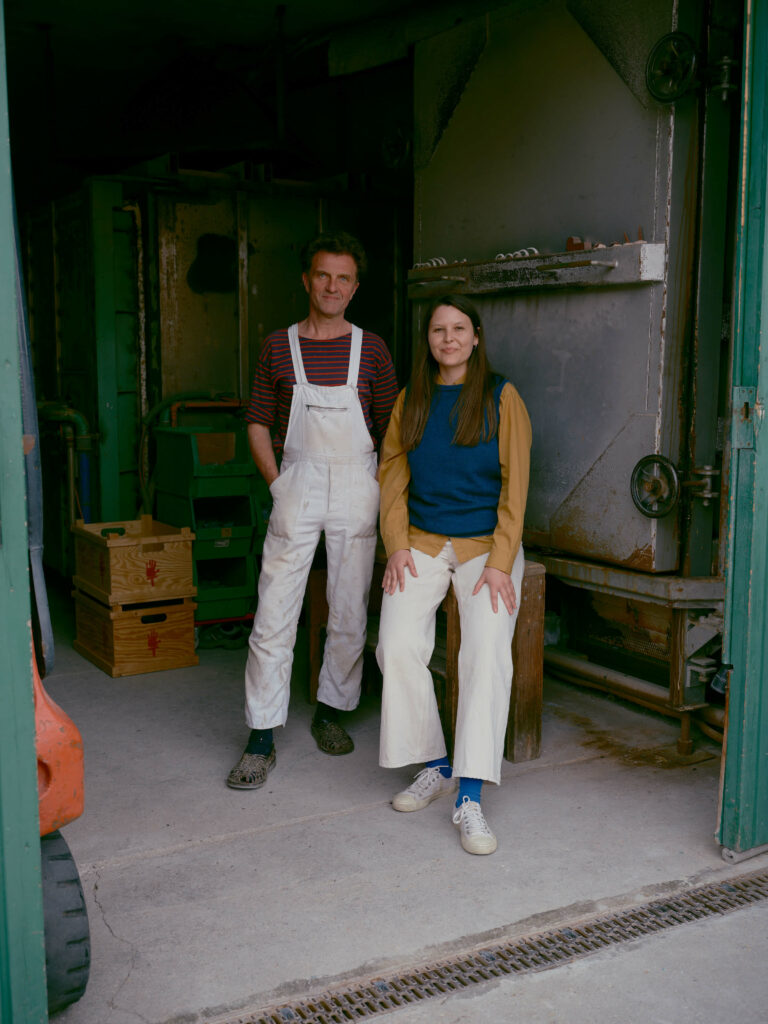
It is a misconception to assume that inexpensive consumption is democratic and inclusive. In reality, it exploits both people and the environment, leading to not only significantly higher long-term costs but also harm to human health and our livelihoods. When you scrutinize the workings of our material world and instigate positive change, you ultimately come to recognize the benefits across all stages, from production to consumption.
The truth is, that medium-priced quality products from ethical production represent a profoundly social choice.
People who craft it are fairly compensated, the quality they create likely accompanies you and other generations throughout your lifetime. By making the craft and the people behind a product visible, consumers connect with a higher purpose and emotion that makes them appreciate, keep, care, and even repair their possessions.
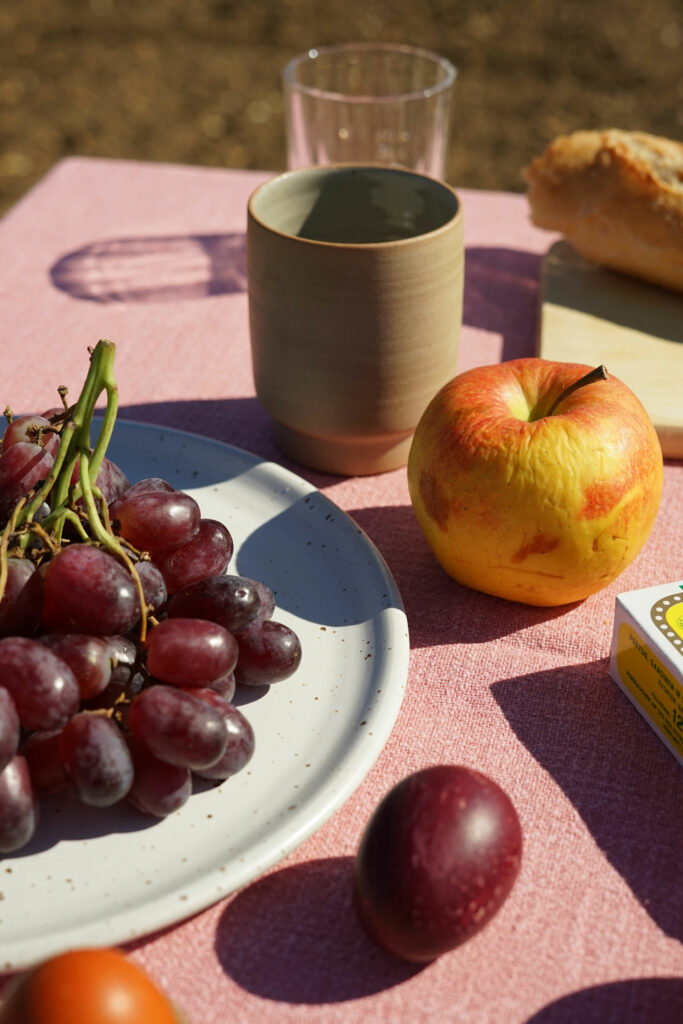
All REH (GERMANY) designs are items without a predetermined expiry date — they’re unobtrusive companions, adaptable, and reliable in a world in process.
Their value lies in their 100% natural material, prolonged usefulness, minimising environmental burden, while refining your perception of the current material world and enhancing your connection to the world we will create.«
2.0 Products
The design and production of quality over quantity is paramount. For this reason, great emphasis is placed on the designing for permanence, simplicity and multi-purpose, through developing practical and reliable products with a versatile function and timeless aesthetic for everyday use.
2.1 Genuine Stoneware Ceramics
- The minimalist, functional stoneware tableware and planters are hand-thrown by one of the last stoneware manufacturers in Germany since 2015. The traditional, family-run Saxon ceramic manufacturer, responsible for crafting all the stoneware tableware and plantware designs by REH (GERMANY), was established during the German Democratic Republic (DDR) in 1976. To this day, it remains a small, dedicated team.
- They are meticulously crafted by hand on the potter’s wheel, then glazed and double-fired at 1300°C, akin to the process used for porcelain. This ensures that the ceramics are both dishwasher-safe and waterproof. All items, including teapots, planters, and vases, are designed to be waterproof, leaving no traces of moisture. Furthermore, they have undergone rigorous food safety testing, making them an excellent choice for official use in restaurants, cafes, hotels, or for your personal enjoyment at home.
2.2 Unisex High Quality Alpaca Knitwear
- The made-to-last unisex alpaca knitwear for men and women is ethically made by a small family business in Peru since 2015.
- Alpaca fibres are allergy-friendly and thermoregulating. Moreover we can confidently confirm a completely wash-free, easy-care guideline of all knitwear. Instead, gently steam the knitwear using a steamer or iron, let it air by the window or in a humid bathroom, or alternatively, place it in the freezer.
- For the purchase of a knitwear piece priced over a value of 200€, we donate 5€ to the AYUDAME Children’s Aid Foundation Arequipa e. V.. Read here for more information.
3.0 Manufacturing
Working with one’s own hands and natural materials is a crucial tool for humans to reconnect with the forces of nature. For this reason, only 100% natural raw materials are processed for the ceramics and knitwear.
For the production of the various small high quality edition series, the focus is managing close-distance and low carbon supply chains as possible. Since 2015, all designs are created in close collaboration with rare artisans and small family businesses.
The hand-thrown production of genuine stoneware ceramics is a cultural heritage that needs to be protected and above all promoted today.
The use of handmade stoneware ceramics contains the idea of a connection between artist and community, a link with other people rather than with factories, machines or corporations.
Since handmade stoneware tableware and plantware builds on the tradition of human interaction, it brings value and appreciation into our lives.
The skill to create and use handmade ceramics thus represents an investment in an aesthetic that values patience and celebrates humanity in objects.
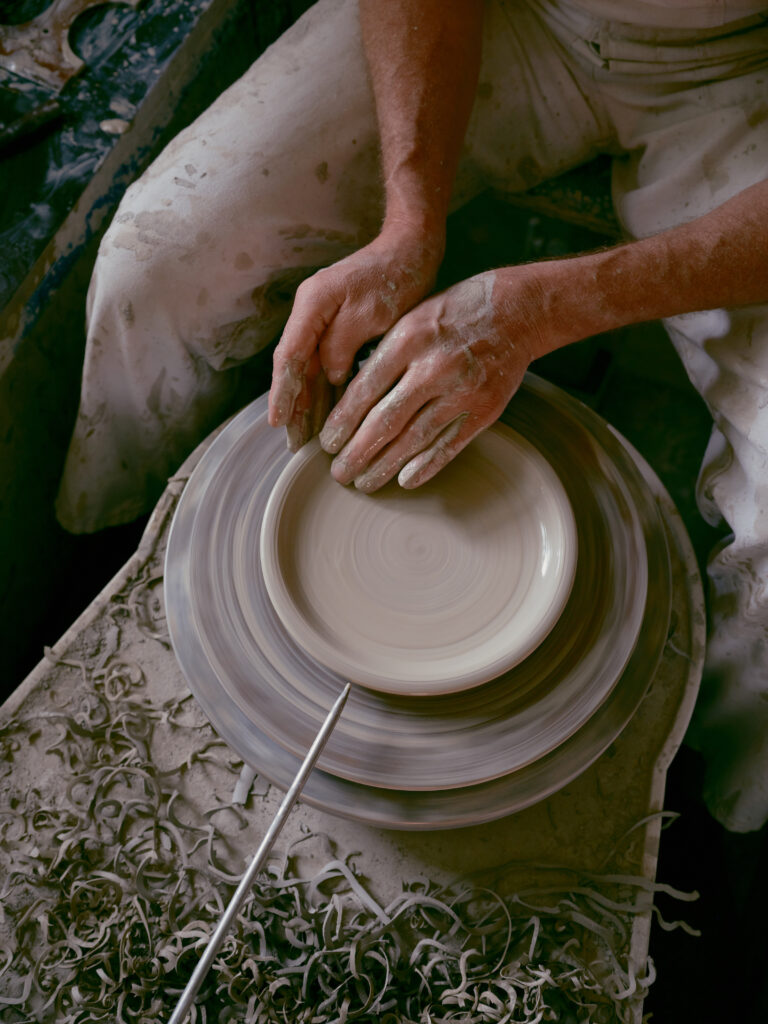
The weight, the raw material, the texture of the material, and the processing not only determine the quality of authentic stoneware ceramics but also of durable knitwear.
In the common knitwear trade, inexpensive sweaters often weigh less than 200 grams (about 12.00€/ kg yarn) and are rarely made of purely natural fibres. The 100% alpaca and baby alpaca sweaters by REH (GERMANY), on the other hand, weigh 600 grams (about 63.00€/ kg).
In addition, the fair small-scale production of natural, high-quality, and durable knitwear compared to mass production, inevitably leads to much higher production costs.
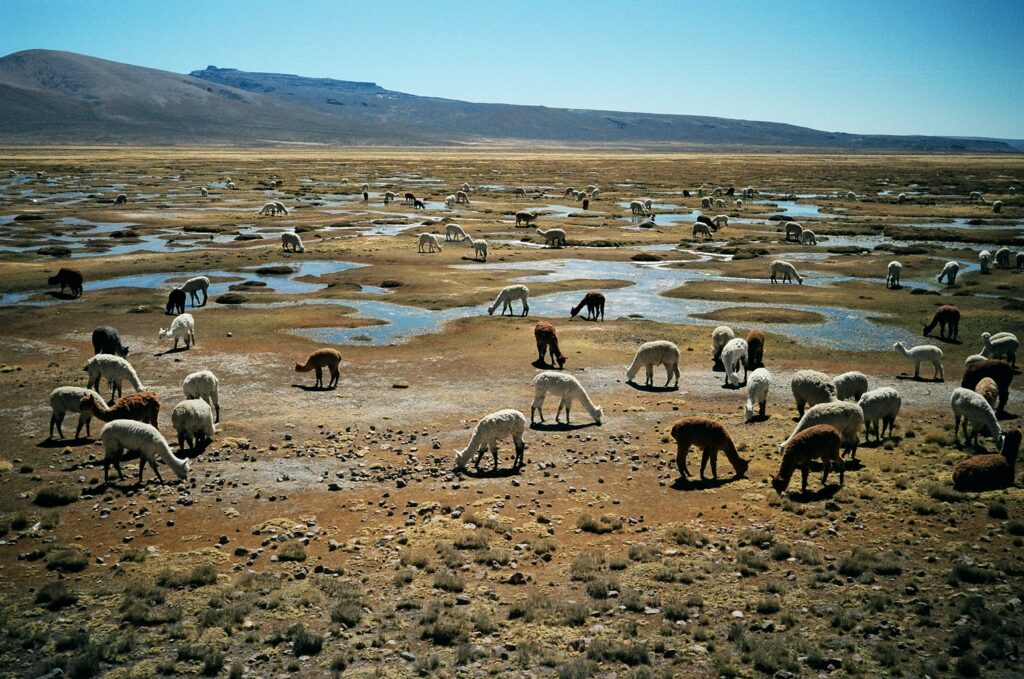
4.0 Socially Responsible Consumption through Direct-to-Consumer Prices
To enable a good price-performance ratio, all products are sold directly to customers without high intermediary luxury margins. In comparison to other design products on the market, all REH (Germany) designs, despite their particularly high quality, are relatively affordable and represent an attempt to enable a democratic price-performance ratio.
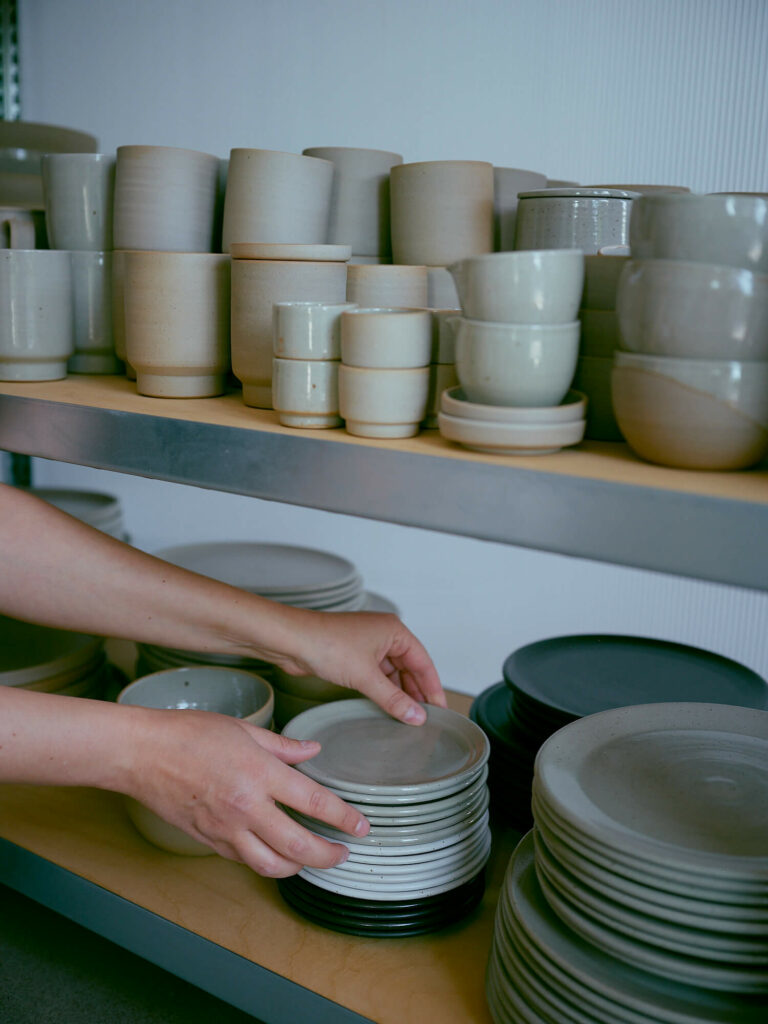
Enabling balanced pricing in today’s times is paramount, because the debate about sustainability and social justice is often misguided.
In today’s consumer landscape, sustainable, high-quality products are often associated with a higher price tag, and understandably so. However, this perception holds true only as long as the demand for inexpensive, mass-produced goods remains dominant, rather than the growing desire for socio-ecological and more regional goods.
The demand determines supply, the development of prices, as well as the direction and balance of the market. This misguided demand for cheap, short-term consumer goods promotes the principle of scaling and profit maximisation based on quantity over quality, environmentally damaging mass production, and the exploitation of low-wage countries.
On the flip side, as the demand for a wider variety of smaller brands, with locally and ecologically sourced, ethically produced, direct-to-consumer quality products grows, the availability of these specialised goods will naturally rise. This can lead to new standard comprised of a wider offer and more diverse range of high-quality products, ultimately making them more affordable, accessible and inclusive.
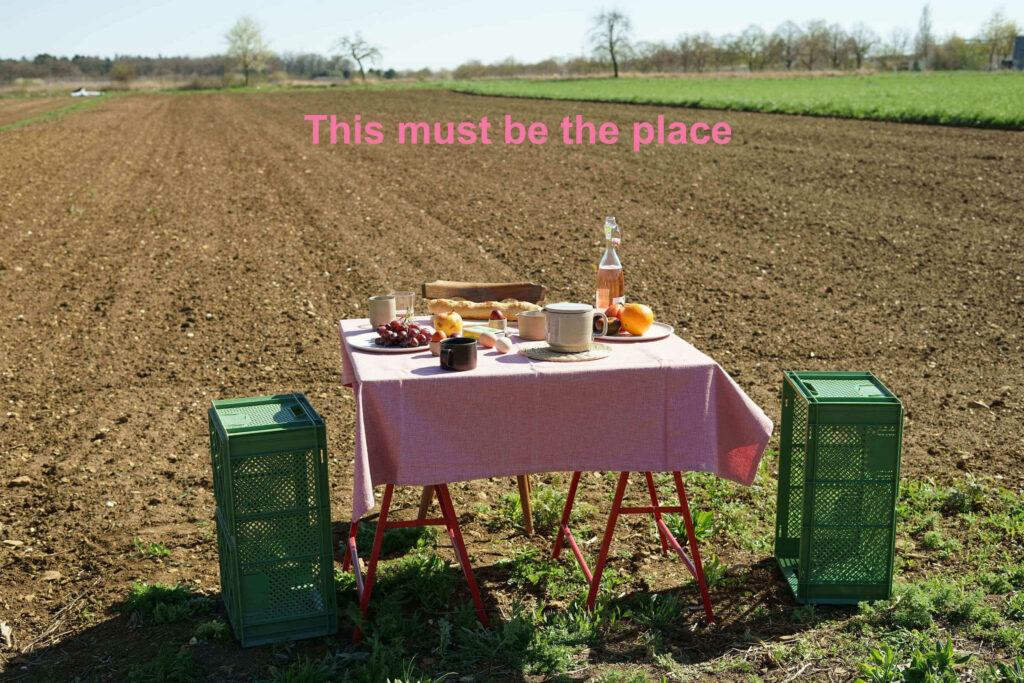
At the same time, supply chains shorten, and CO2 emissions decrease because the shipping of cheaper goods from low-wage countries would be reduced. This leads to a more attractive and positive future prospects for local apprentices in crafts, craftsmanship and nationwide ethical manufacturing.
Even in the luxury segment, high profit margins, marketing expenses, and distribution costs often determine the price, rather than higher quality, local production, and integrity.
That’s why a fair, natural, and moderately priced quality product can be considered a socially responsible choice. This is when the people who produce it are paid fair wages, when it is produced as locally and with a low-carbon footprint as possible, and when its quality and value are so high that the customer can use it, repair it, and pass it down to future generations throughout their lifetime.
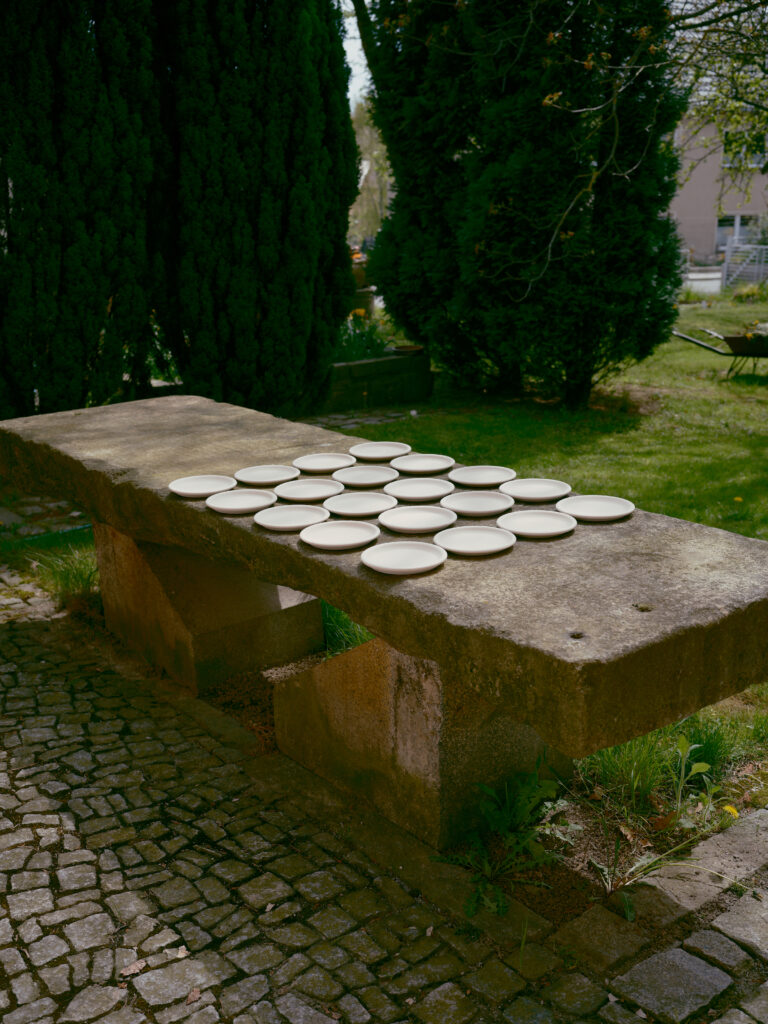
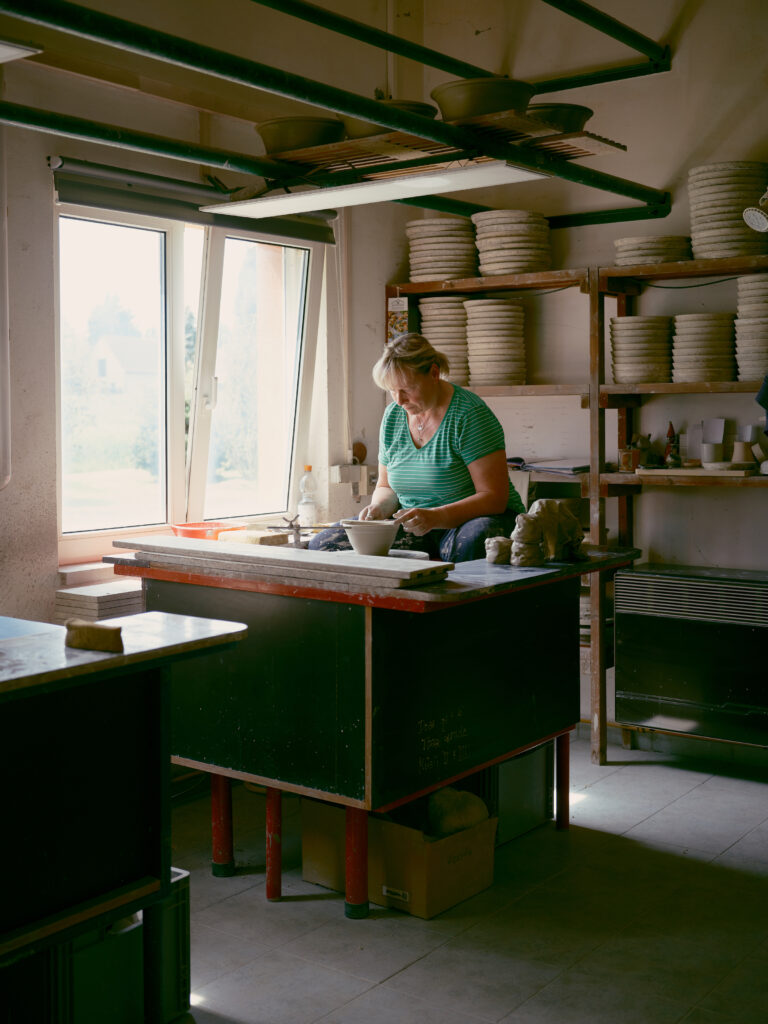
The culture that promotes and demands for more affordable, quality goods rather than cheap, short-lived disposables or trend-driven status-symbol goods, is an educated and social culture. Because it understands the cooperation between humans and nature, it recognises the true value of better quality, it advocates for fair wages, democratic quality and responsible entrepreneurship.
But above all it is a culture that shares the common will to invest a little more for something better to grow in this world.
5.0 Philosophy
»Creating scenarios and awakening visionary forces in people, showing them that it is possible to live not necessarily in luxury, but in a dignified and humane way.«
(Erich Fromm, Speech on the ‘Ambivalence of Progress’, 100 years of Albert Schweitzer)
In the face of escalating tensions between humanity and nature, urban and rural, machines and handwork, industry and craftsmanship, luxury and discounter, the question arises: How do we strike a new equilibrium?
For REH (GERMANY), this inquiry isn’t just a theoretical musing, but a practical exploration manifested through the design, production, and distribution of the designs. As a small-scale design label with a commitment to social and sustainable design, I find it imperative to challenge a world dominated by technology, luxury, and profit. This isn’t merely a personal necessity but a new form of an extended artistic protest.
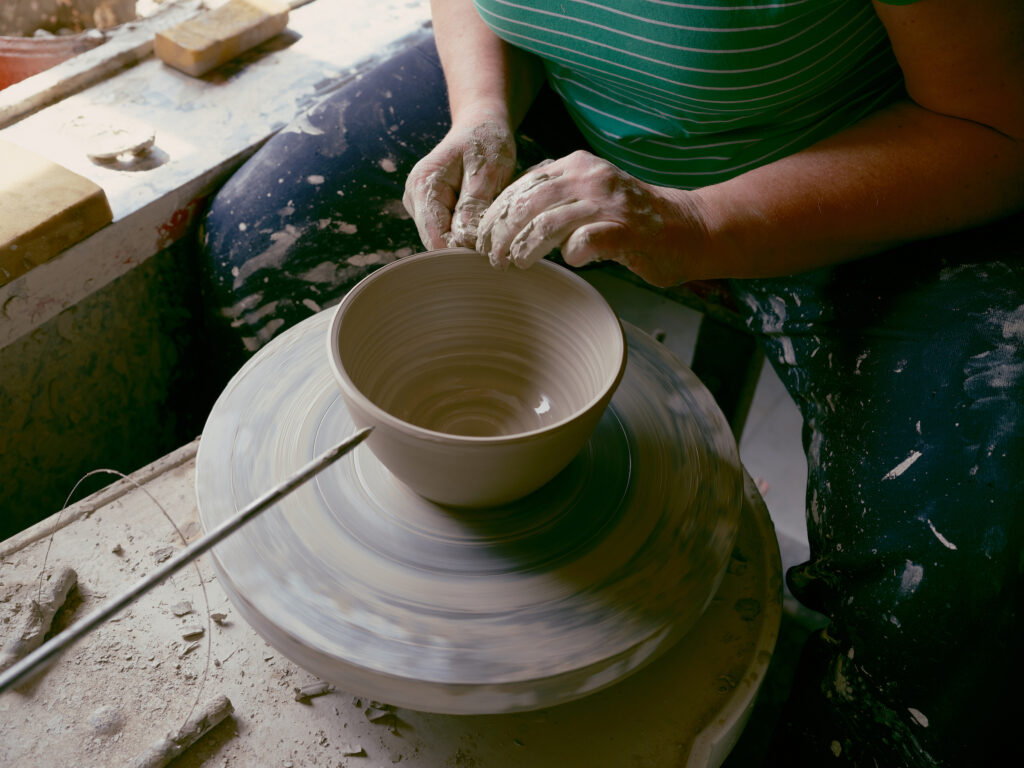
Given the almost unchanged consumer behaviour in our society since the 1960s, the greatest challenge of our time is to live with integrity, create new values, and promote education about sustainable alternatives. Since population growth today requires an adaptation of our consumption behaviour to secure the future for generations to come.
»Our task is to create a healthy economy for healthy people. The first step towards this goal is to align production with healthy and reasonable consumption. The role of the state is to oppose the pathogenic consumption with norms of healthy consumption.«
(Have or Be, Erich Fromm, 1979, 41st edition 2014, dtv, p. 215)
Since I discovered the economists Leopold Kohr and his student Ernst Friedrich Schumacher with the book “Small is beautiful” (1973) in 2009, I discovered that both inspired the psychoanalyst Erich Fromm for his book “To Have or To Be” (1976) and Victor Papanek for his Social Design Theory (1984). I’m thankful for this meaningful discovery, their words and findings influenced the way I design and produce for my label REH (GERMANY).
6.0 Logo and Sign
The name of the label REH (GERMANY) initially emerged from the letters R-e, symbolising the hopeful beginning of many important words such as
Re-form, Re-duce, Re-think, Re-use, Re-cycle, Re-flect, Re-concile, Re-scue, Re-vive, Re-main, Re-turn, Re-medy, Re-volution, Re-generation, Re-birth, etc..
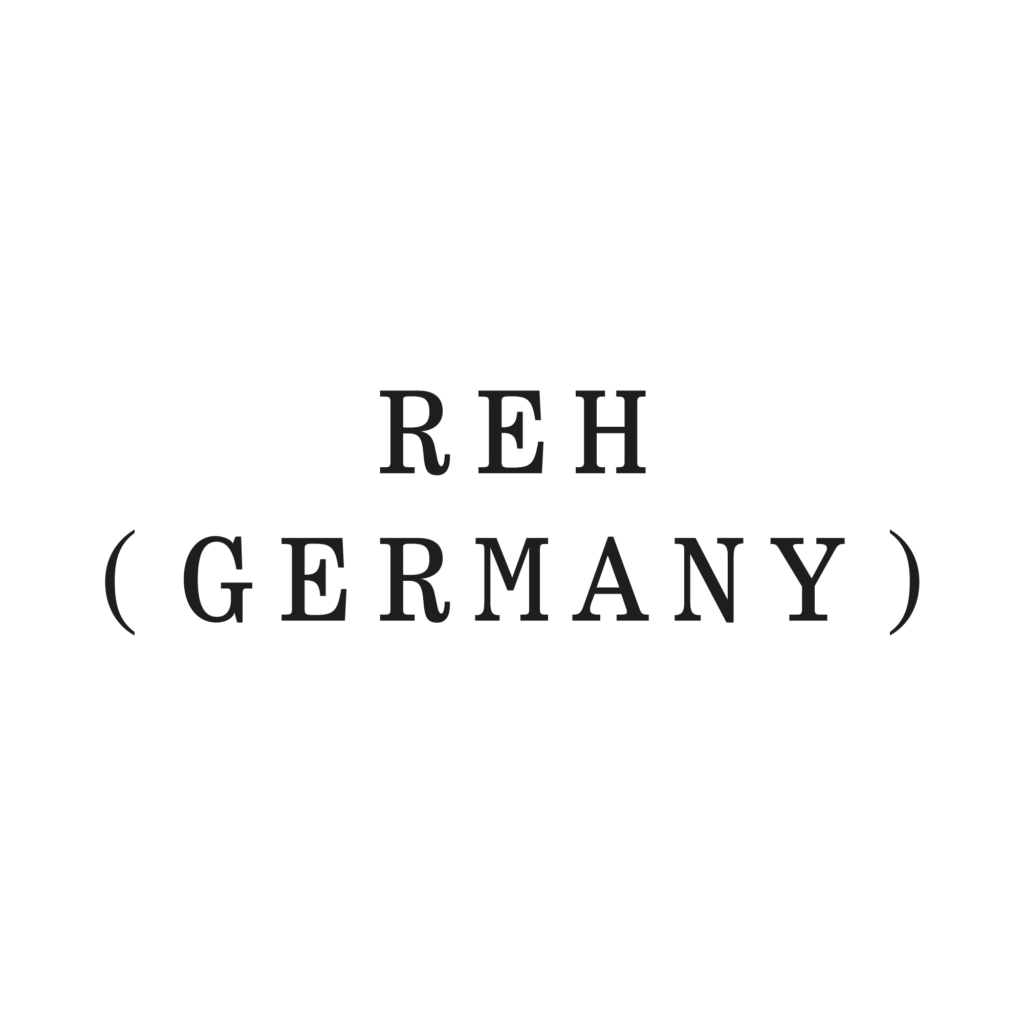
R-EH – EH are the initials of Eliza Helmerich.
The label name is also dedicated to one of the most beautiful parks in Berlin, named Rehberge Park in Berlin Wedding, where close by in Lütticherstraße the label was founded in 2015.
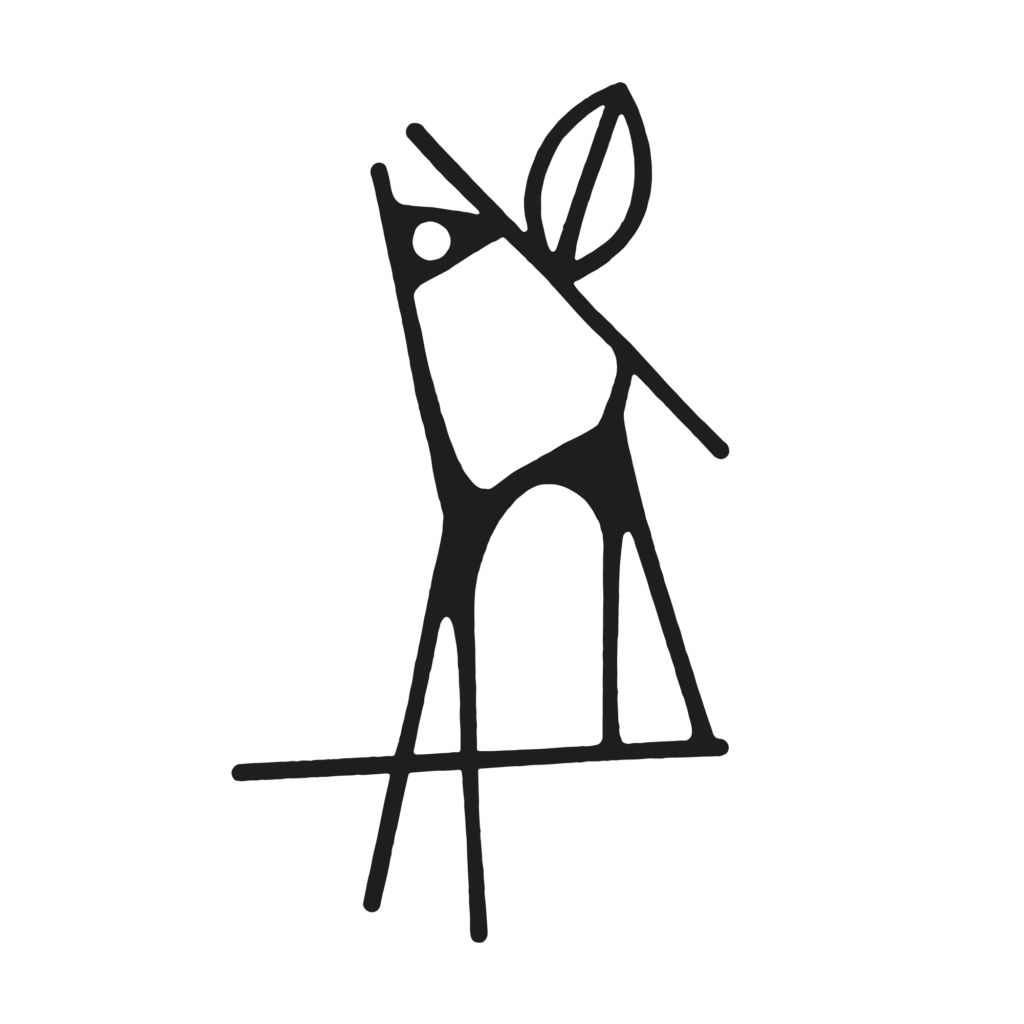
The Art Director Tilmann S. Wendelstein (75W) designed the new logo, featuring a deer under a leaf, symbolizing the connection with and protection of nature.
It was drawn in reference to the exlibris artists of the Vienna Workshops as well as the cave paintings of Lascaux.
The totem animal deer implies that we should become aware of our own strength and true abilities as humans and learn to utilise them.
7.0 Biography
- Born in Schweinfurt, Franconia Germany (1987)
- Life in the countryside with art education by grandfather, artist and master baker (1987 – 2006)
- Internship Bridal Wear Tailoring
- A-Levels, Olympia-Morata-Gymnasium (2006)
- Move to London (2006)
- Fashion Folio, Central Saint Martins College of Art & Design London under Peter Towse (2007)
- Foundation Course, Central Saint Martins College of Art & Design London under Natalie Born (2008)
- Fashion Design Womenswear Studies, Central Saint Martins College of Art and Design under Howard Tangye (2008 – 2012)
- Assistant to Thom Browne (Designer, New York), Rocco Ciccarelli (Italian master tailor, New York), Vivienne Westwood (Designer,London), Bernhard Willhelm (Designer, Paris), Jonathan Saunders (Designer, London), Richard Nicoll (Designer, London) (2009 – 2014)
- Move to Berlin (2014)
- Writer and Editor for Design (2014 – 2023)
- Founding R•EH in Wedding, Berlin (2015)
- Launching Onlineshop (2016)
- Giving birth to Elion (2018)
- Moving Atelier to Lobe Block Terrassenhaus, Gesundbrunnen, Berlin (2018)
- Launching new permanent knitwear and ceramic editions (2017 – 2023)
- Organising interdisciplinary Studio Pop-Ups at Lobe Block (2019 – 2023)
- Co-Founding the non-profit organisation plan A+ Klima & Kultur e. V. (2021)
- Relaunch of Label and Onlineshop – with REH (GERMANY) as a new Logo (2023)
